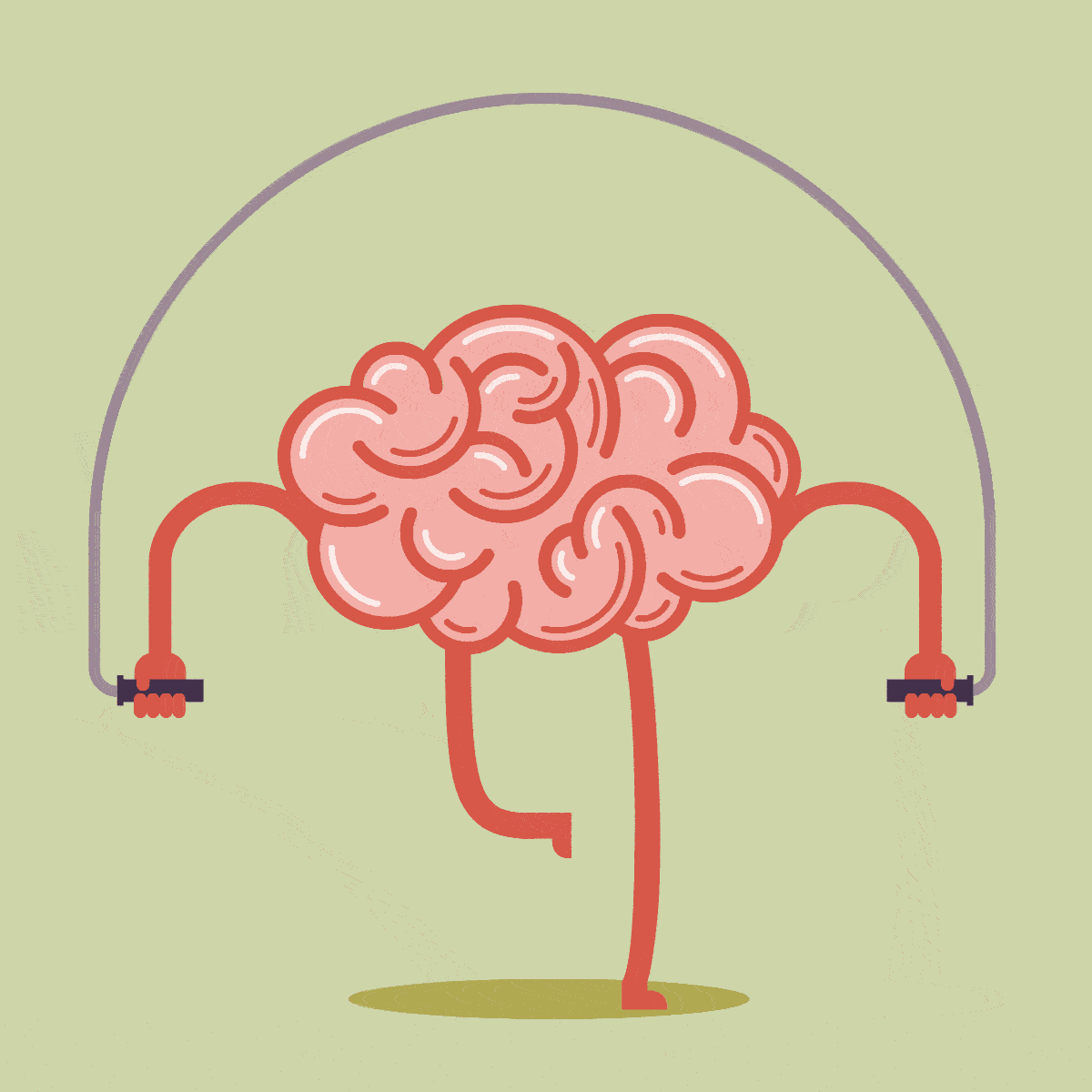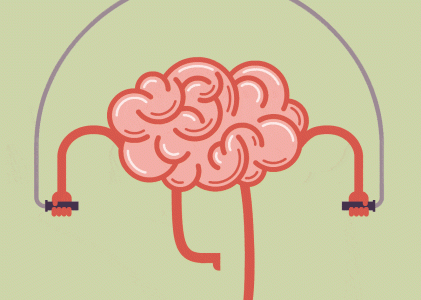You probably already know that exercise makes you feel better—and not just physically. But did you know that physical activity can improve, and even prevent, depression and anxiety?
It’s not really news that exercise is good for you. But we’re just now beginning to understand the profound impact exercise has on the brain, especially regions of the brain related to depression. Better yet, research shows that even modest increases in physical activity can yield outsized mental health benefits.
Some of the strongest evidence for the mental health benefits of exercise relates to depression. In fact, 23 different clinical trials all found that exercise was clearly effective. But how does it work?

How does exercise impact the brain?
It turns out that exercise improves more than just muscular strength and cardiovascular fitness, it also buffs up your brain.
Physical exercise triggers the release of BDNF (brain-derived neurotrophic factor) which is a key molecule for the growth of new brain cells. While we don’t know for sure that increasing BDNF production fights depression, we do know that people with depression have lower levels of BDNF. Encouraging new brain cells in the hippocampus – an area of the brain that tends to be smaller in people with depression and anxiety – may be one way physical activity helps improve the condition.
Exercise has other effects on the brain, too. It also stimulates the release of endocannabinoids. These molecules are important for modifying the connection between brain cells, the underlying process of learning. Learning is crucial for the successful treatment of not just depression, but also anxiety disorders such as PTSD. Both BDNF and endocannabinoids are associated with stronger learning responses.
Physical activity also improves your body’s ability to handle stress and reduces inflammation, both of which can improve brain function.
Beyond the brain
Physically changing your brain isn’t the only way exercise improves mental health. Here are a few other ways it helps:
- Antidepressant medications and therapy take time to improve your mood, but exercise can work immediately. This makes it a valuable addition to your treatment regimen.
- Exercise counteracts some of the side effects of antidepressant medications, including weight gain.
- Many people with depression struggle to feel pleasure and engage with others socially. They’re also more likely to suffer heart disease and other chronic ailments. Exercise can lessen the risk of all of these.
- If you suffer from depression, simply doing something—anything—can be helpful. One study found that gentle stretching—too mild to have any physiological benefit—had about half the beneficial effect on mental health as actual exercise.
- Physical exercise also gives you a clear sense of progress. You can actually see the benefits relatively quickly, which helps teach you to expect success.
- Reasonably strenuous exercise also teaches you to put up with short-term discomfort in exchange for longer-term gain. Being able to tolerate internal discomfort is important for regulating your emotions.
Why exercise is a challenging prescription
Depression and a lack of motivation often go hand-in-hand. This can make it difficult for you to start, and stick with, an exercise program. It’s likely you may need additional support. While encouragement from friends and family certainly helps, if your depression is serious enough that you’re on medication or working with a therapist, you should make them aware of your desire to incorporate exercise into your treatment.
Psychologists and other mental health workers often aren’t used to prescribing and supervising exercise, so it’s not surprising if it’s not part of your current treatment. Let your psychiatrist or therapist know you’d like to explore incorporating exercise into your treatment plan.
Ready to start?
Here are 10 quick tips that can increase the chances your mental health will benefit from physical exercise:
- Doing anything is better than nothing.
- Don’t know where to start? You can’t go wrong with a daily walk.
- Don’t overdo it. If you’re exhausted, you can’t work on you. Stop while you still feel energized.
- The structure of an organized activity such as a class or a team sport provides support and motivation.
- Need extra motivation? Strength training yields quick, easily measurable results.
- Find something you enjoy. If you hate running, you won’t keep running.
- Group yoga gets you out of the house and improves strength, flexibility and mindfulness, all at the same time.
- Get out of the house. Both social engagement and sunlight are known to improve depression, amplifying the benefits of exercise.
- Garden. Believe it or not, tending to plants is a light-to-moderately strenuous activity. Plus, gardening has other mental health benefits.
- Try “temptation bundling.” Pair something you enjoy with exercise. For example: “I only get to listen to my true crime podcasts while walking.”
Important Considerations
While exercise often improves symptoms of depression, that doesn’t mean it’s a simple replacement for treatments like therapy and medication. Physical activity is just one of several useful tools for managing depression and improving your mood.
Next Steps
If you think you or someone you love is struggling with depression, call your doctor, or contact Athena Care for mental health care in Tennessee.
One of our Care Coordinators will help you get the care you need.

Rachel Swan, MS
Editor
Rachel has a Masters of Science in Clinical Psychology from Vanderbilt University, where she spent 16 years as a Research Analyst in the Psychology and Human Development Department.


